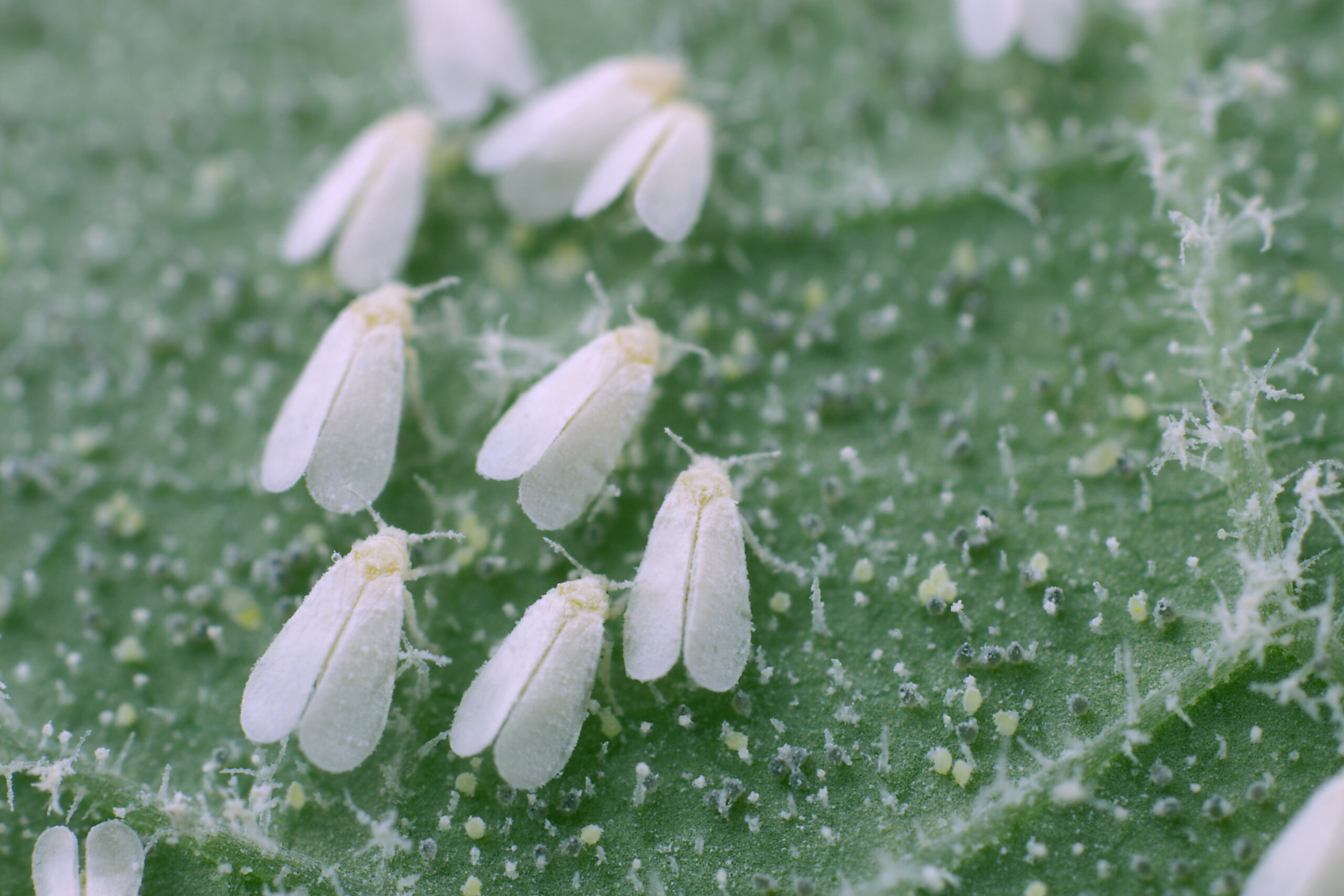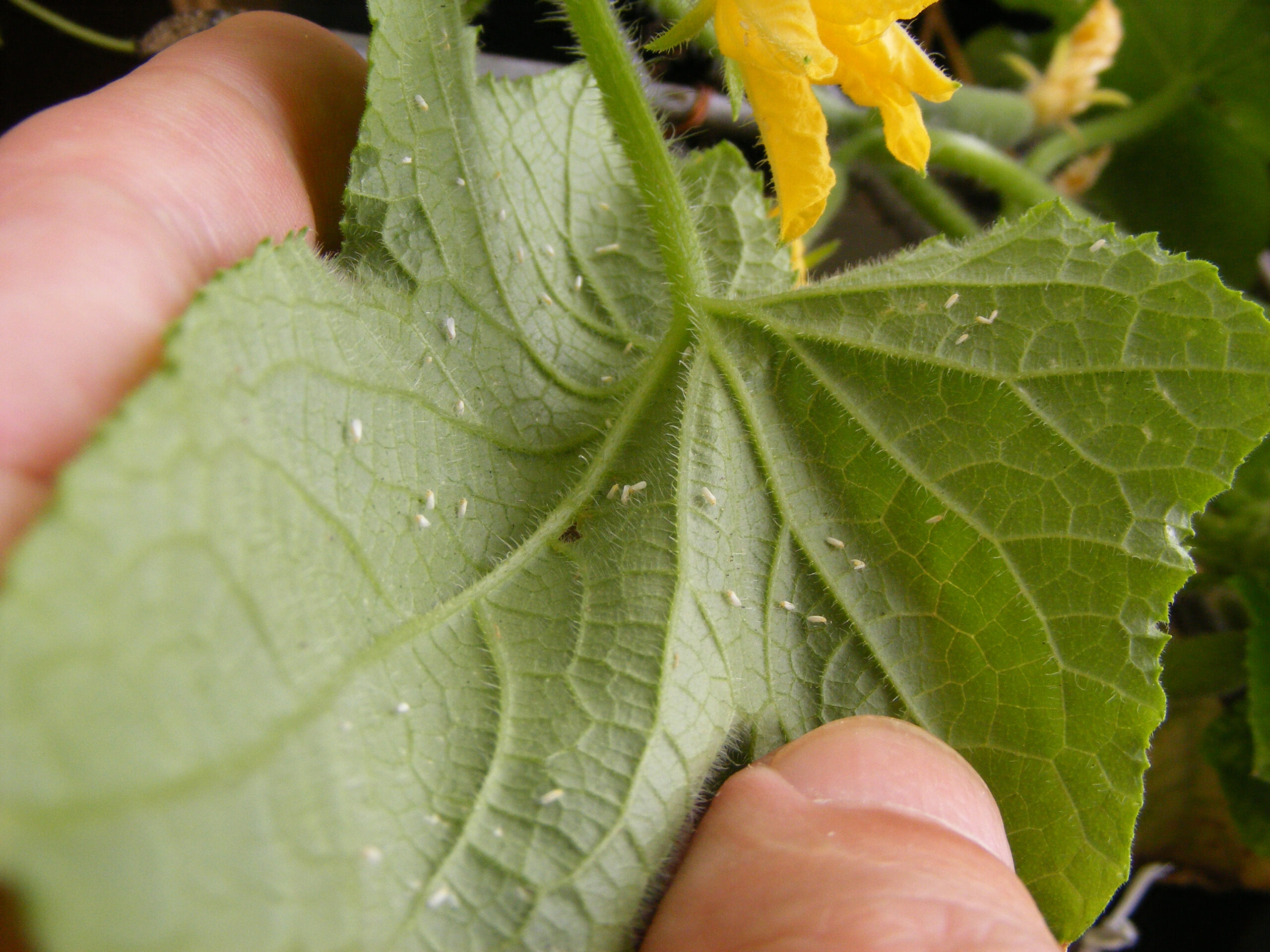
Whitefly
Whitefly are a major pest on ornamental plants. They are known to feed on more than five hundred species of host plants such as poinsettia, hibiscus, ivy, ficus, lantana and mandevilla to name a few. Adults are moth-like and covered with a white, waxy powder. Adults are about 1/16th of an inch in length and females can lay about 50 eggs in cool environments and up to 400 at higher temperatures. (Information on this page is courtesy of IFAS Extension University of Florida)
Is a Recurring Pest Control Service Needed for Whitefly
Yes, these insects feed on plants by injecting enzymes and removing the sap which is the vigor the plant. The best control method for eliminating a whitefly issue is with a systemic (absorbed into the plant and works its way through the root system) product, the issue with systemic products is that they can take long times to become completely effective. Significant damage from whitefly can happen while this systemic product is working it ways through the entire plant system, so we recommend a continual recurring treatment to ensure there are no gaps in your plants health.
Consider Replacing Ficus with a Native Plant
As a pest control operator, the first thing we think of when someone mentions ficus is whitefly. This insect can cause significant damage to ficus and make it unsightly in a short period of time. A whitefly infestation will cause green leaves to drop at high rates leaving a bare bush behind. Unfortunately, products are limited at treating these insects and we are starting to see increase signs of pesticide resistance with whitefly. Consider replacing ficus with a native plant selection to best avoid potential pest issues.
